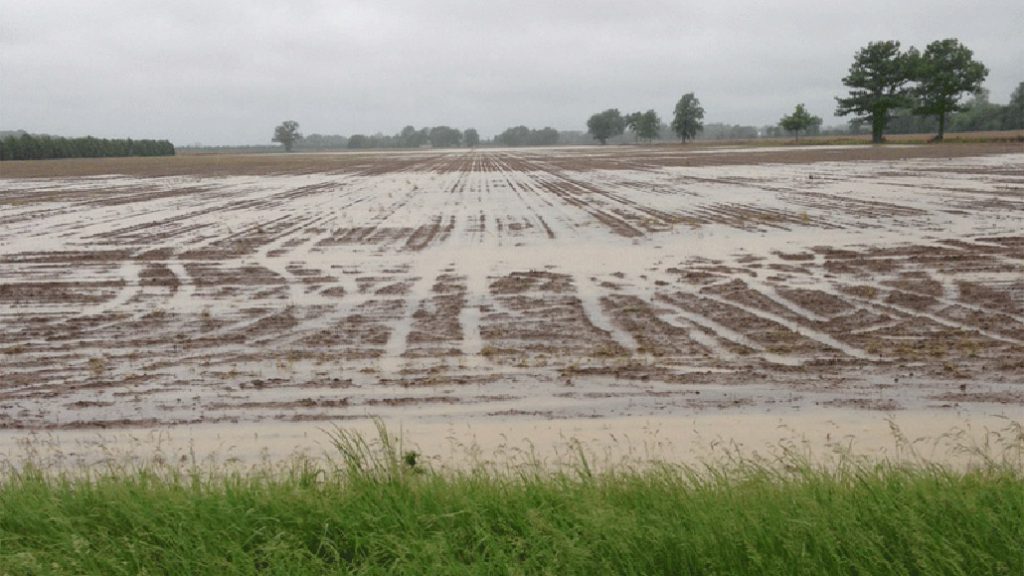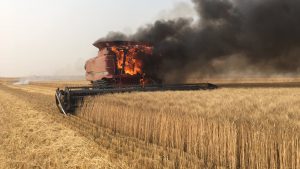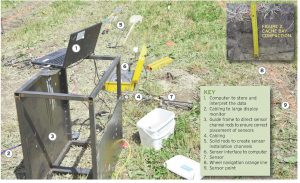Seasonal stress
NEW INITIATIVES TO HELP FARMERS COPE

IT’S NOVEMBER. IT’S been a wet fall, resulting in wet, muddy fields. It’s sunny today, drying the ground up just enough to maybe get a combine in the fields. The weather forecast calls for rain — which could also turn to snow — for the next four days. You’ve been pulling long days, sometimes as much as 18 hours, just to get everything ready for a break in the weather. You’ve been skipping meals and you’re worried if you can get everything off the field in time.
Sound familiar? Unfortunately, this is a common scenario for many farmers, resulting in high levels of stress that can pose even bigger problems to your overall health. Harvest is one of the most stressful times of the year for farmers, who are often battling the weather and time to get their crops off the field and into the bin to maintain crop quality.
To manage stress, the first step is identification. According to the Canadian Agricultural Safety Association, stress can affect your physical and emotional wellbeing as well as your behaviour. Physical symptoms include headaches, stomach problems, chest pain, fatigue, a rapidly beating heart, and grinding or clenching teeth. Emotional symptoms include increased angry blow-ups, frustration, low self esteem, depression, anxiety, and suicidal thoughts. Behavioral symptoms include overeating, increased drug or alcohol consumption or smoking, changes in sleep, forgetfulness, and a short temper.
Factors like the weather are unchangeable; but managing other sources of difficulty and potential stress can go a long way in reducing overall levels.
STRATEGIES
According to Agriculture and Agri-Food Canada, there are a few strategies that producers can use to manage time and stress around stressful situations. Making sure all bases are covered and accounted for ahead of time can go a long way in stress reduction. Producers should:
- Plan ahead and don’t procrastinate — replace worn machinery parts and complete maintenance during down times rather than when the equipment is needed in the field
- Use your time efficiently. Set priorities and work at tasks accordingly. Remember there are only so many things that you can do in a day
- Prior to stressful seasons — calving, seeding, harvest — delegate and plan who will take care of the everyday chores
- Learn to say no to extra commitments to make time for your own well-being. Taking care of yourself now will help ensure you will be able to fulfill commitments now and in the future
Maintaining a positive outlook with an action plan to solve current or potential problems is an asset, rather than being weighed down by adversities:
- Concentrate on thinking and using positive energy to solve a problem rather than directing that energy into worrying about what might happen
- Give yourself and others credit for what has been accomplished instead of focusing on what hasn’t been done
- Set realistic goals, both short and long term. Major long term goals maintain perspective, while daily goals help align priorities and make tasks manageable
- Make a plan for your day. When you cannot get everything you want completed in a day, tackle what will give you the biggest return
- Look at the big picture and count the good things that happen
- Leave a little time to deal with the unexpected.
SUPPORT
Setting a plan and maintaining perspective are important in managing stress on a low level, but sometimes more help is needed.
Several initiatives have helped bring mental health into the spotlight. Bell Let’s Talk Day, Clara’s Big Ride, and others have encouraged conversation and awareness in the non-agricultural community, with some spillover to agriculture, but more work has still been needed in agriculture to reduce the stigma of mental health.
Do More Ag was established late in 2017 in response to the growing concern around the mental well-being of Canadian producers and others working in the agriculture industry.
“Mental health wasn’t something that was talked about very much or very openly and we wanted to change that in order to make a positive impact across the industry and our producers,” says Kim Keller, founder of Do More Ag. “We are champions for the mental wellbeing of all Canadian producers and strive to create a culture in agriculture where all producers are encouraged and supported to take care of their mental wellbeing. We are making mental health a priority discussion and empowering others in the industry to Do More in ways that make sense to them — from conversations to training.”
Currently, Do More Ag is focusing on developing new content for the industry to build awareness around mental health. They have also recently partnered with Farm Credit Canada to bring new tools to rural communities — in this case, by offering mental health first aid training within farming communities. The Community Fund will provide funds for which communities can apply to increase familiarity and knowledge around identifying and assisting in mental health emergencies. Mental health first aid training equips people with the tools they need to identify and help with an occurring mental health crisis until the proper resources are found.
“We are at a crisis point across many industries and sectors that the topic can no longer be ignored and I’m thankful that so many organizations are tackling this subject as it will take everyone doing their parts to make the impact we need to have,” says Keller.
For more information on Do More Ag and mental health first aid, visit www.domore.ag. If you have mental health concerns, or want to find out more information on how to manage your own stress, speak to a mental health professional. •












